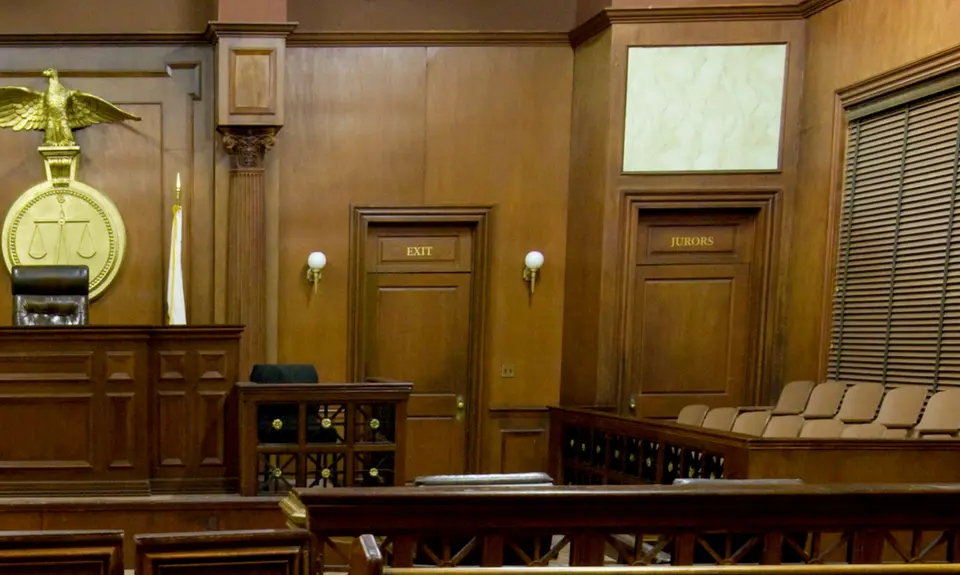“Confirmed Judges, Confirmed Fears” is a blog series documenting the harmful impact of President Trump’s judges on Americans’ rights and liberties.
Trump Third Circuit judge David Porter cast the deciding vote in Howell v. Sup’t. Rockville SCI in September to affirm a lower court’s rejection of a black man’s claim that the jury in his trial was not drawn from a fair cross-section of the community. The dissent criticized the majority for a decision that “deprives the Sixth Amendment of any power” to provide a remedy where a “distinctive group” – in this case, black people – is “systematically excluded” from jury panels, where the group constitutes 10 percent or less of the community’s population.
Joseph Howell, who is black, was prosecuted for felony murder of a white man in 2004 in Allegheny County. He was convicted by an all-white jury, which was selected from panels that did not include any black people. After state courts affirmed the conviction, even though his lawyers raised concerns about the absence of any black people in the jury pool, he filed a petition for post-conviction relief in federal court. Relying on expert statistical evidence, Howell demonstrated that even though 10.7 percent of jury-eligible people in Allegheny County were black, only 4.87 percent of prospective jurors on jury panels were black. This meant that more than 54 percent of black people eligible for jury service – more than 110,000 people – were excluded before individual juries were even selected.
Both the lower court and a 2-1 panel of the Third Circuit on which Porter was the deciding vote, however, rejected the claim that Howell had been deprived of his right under the Sixth Amendment to have his jury drawn from a “fair cross-section” of the community. Although Pennsylvania had failed to introduce any evidence rebutting Howell’s showing, the majority claimed that Howell’s evidence was inadequate, and that excluding black people from the jury pool was not shown to be “systematically discriminatory.”
Judge Felipe Restrepo strongly dissented. He showed that the majority’s criticism of Howell’s statistics was “mere speculation” that was inconsistent with prior precedent, and essentially demanded a “new standard” of “statistical purity” that would be effectively “unattainable.” Restrepo specifically criticized the majority and a concurring opinion by Porter for arguing, in effect, that the Sixth Amendment “provides no remedy for complete, systemic exclusion of distinctive groups in the community” from jury panels “where those groups constitute less than 10% (or 11.5%) of the population.” The 11.5 percent figure referred to Porter’s statistical purity standard, which would have meant that Howell would have been precluded from even making any 6th Amendment claim.
Restrepo also criticized the majority for arguing that the methods used to select jury pools in the county were “facially neutral” and not “systematically discriminatory.” That claim, he pointed out, appeared to suggest that Howell had to prove “discriminatory intent,” which is clearly not required by the Supreme Court. Although such intent is mandatory to prove a violation of the 14th Amendment, Restrepo explained, the Third Circuit had previously held that intent “need not be shown” to prove a violation of the Sixth Amendment right recognized by the Supreme Court to a jury pool that is a “fair and reasonable” cross-section of the community. In fact, he pointed out, the Third Circuit had specifically noted that the use of facially neutral criteria like voter registration lists, which were used in Howell’s case, could constitute a Sixth Amendment violation where it “sizably” underrepresents a group, as in Howell’s case.
Restrepo would have sent the case back for further proceeding to see if the state could justify such significant discrepancies, but the majority, including Porter, dismissed Howell’s case completely. The result continues to perpetuate racially exclusionary practices in the jury selection process and jury decisions that are biased against black people.
